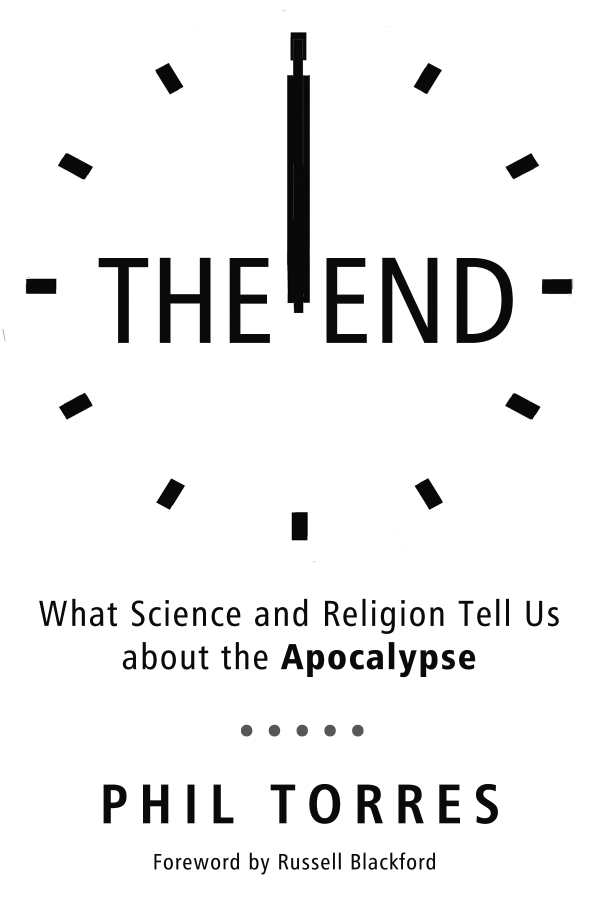
The End
What Science and Religion Tell Us about the Apocalypse
There are many possibilities for humankind’s final demise, but some are closer than others. In The End, Phil Torres has created a thoroughly researched treatise of doom, investigating fates as cosmic as the heat death of the universe and as provincial as a terrorist nuclear attack. Throughout, he relates possible annihilations to religious factors, primarily focusing on Christian, Muslim, and Jewish groups that try to impact the world in such a way as to bring about religious apocalypses.
Needless to say, The End will almost definitely inspire controversy among religious groups. It focuses particularly on Muslim extremism, providing analysis of the apocalyptic motivations of the Islamic State and Al-Qaeda that may prove enlightening to Western audiences and may offend Muslim ones. However, the religious criticisms only go so far as apocalyptic beliefs. Most of the catastrophes Torres relates are secular in nature. The intense detail into which he delves may give his intended audience deeper background into hazards that most people are at least peripherally aware of, and the intense research will serve to uphold the book’s factual claims, if not its opinions on religious activity.
The subject matter is necessarily grim, but the style is not salacious or otherwise over-the-top. Instead, the book seems to strive to present a logical picture of the dangers at hand and their possible solutions, as though it were a report written for policymakers.
Reviewed by
Anna Call
Disclosure: This article is not an endorsement, but a review. The publisher of this book provided free copies of the book to have their book reviewed by a professional reviewer. No fee was paid by the publisher for this review. Foreword Reviews only recommends books that we love. Foreword Magazine, Inc. is disclosing this in accordance with the Federal Trade Commission’s 16 CFR, Part 255.
